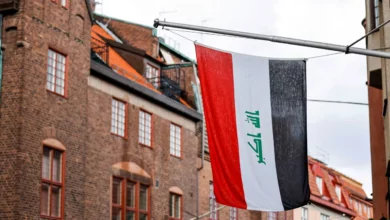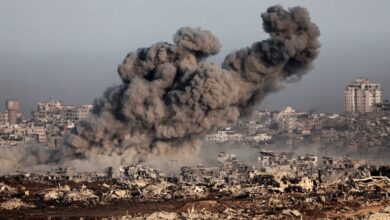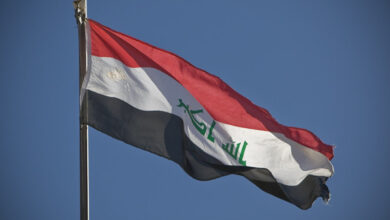Fueled by unrest sweeping the Arab World, tens of thousands of Iraqis have taken to the streets in recent months to demand political reform and denounce both corruption and inadequate social service provisions. But, according to an in-depth report released by Amnesty International earlier this month, this widespread dissent is being met with brutal suppression, intimidation and torture.
Days of Rage: Protests and Suppression in Iraq documents the killing of protestors, including several under the age of 15, by Kurdish and Iraqi security forces and the detainment of activists and journalists.
“The Iraqi authorities must end the use of intimidation and violence against those Iraqis peacefully calling for political and economic reforms,” said Malcolm Smart, Amnesty International’s director for the Middle East and North Africa, in response to the report.
“Eight years on from the end of Saddam Hussein’s long and grossly oppressive rule, it is high time that Iraqis are allowed to exercise their rights to peaceful protest and expression free from violence at the hands of government security forces. The authorities in both Baghdad and the Kurdistan region must cease their violent crackdowns.”
The twenty-page document depicts governmental tactics to quell demonstrations, which erupted in mid-February, and muzzle the press, in direct contravention of international human rights law.
"Up to now, the Iraqi authorities in both Baghdad and the Kurdistan region have sought to crack down on peaceful protestors. This must change,” the report says. “They should be cracking down on the use of excessive force and torture by their own largely unaccountable security forces, not on the right of people to peacefully protest. The Iraqi authorities should be upholding the rights to freedom of expression and peaceful assembly, including the right to protest, not trying to suppress them. It is high time to do so."
Days of Rage explores the technicalities of the United Nations sanctioned and Iraq ratified International Covenant on Civil and Political Rights. The covenant permits the rights of states to restrict freedom of assembly in order to preserve public safety and national security.
Despite the ambiguity of language in the covenant and the flexibility in which such restrictions can be justified, Amnesty International claims Iraqi forces have violated several of the agreement’s central clauses.
Two such clauses the rights group alleges Iraqi authorities are in contravention of include: “Any such restrictions must be proportionate to a legitimate purpose and without recourse to discrimination, including on grounds of political opinion,” found in Article 21, and “law enforcement officials may only use firearms against people in self-defense or defense of others against the imminent threat of death or serious injury,” located in Article 9.
The report also presents the testimonies of several of those who personally suffered at the hands of state suppression. Organizer of one demonstration Oday Alzaidy told Amnesty International, according to Days of Rage, armed forces apprehended him on 13 February at al-Firdaus Square in Baghdad.
“They came to me every day and they attacked me with beatings and gave me electric shocks. They told me to confess that I was sent by the Ba’ath party,” said Alzaidy. “When I denied this, they beat me even harder with batons and they shocked me with electric prods.”
Amnesty’s Middle East and North Africa director says the governments in Baghdad and the Kurdish region must exercise greater control over their armed and security forces. The state, according to Malcolm Smart, must also hold accountable those who have impinged on the internationally recognized human rights of Iraqi demonstrators.
“The way to begin defusing tensions across the country and restore public confidence is to deliver truth and justice, and to make reparation to those whose rights have been violated.”




